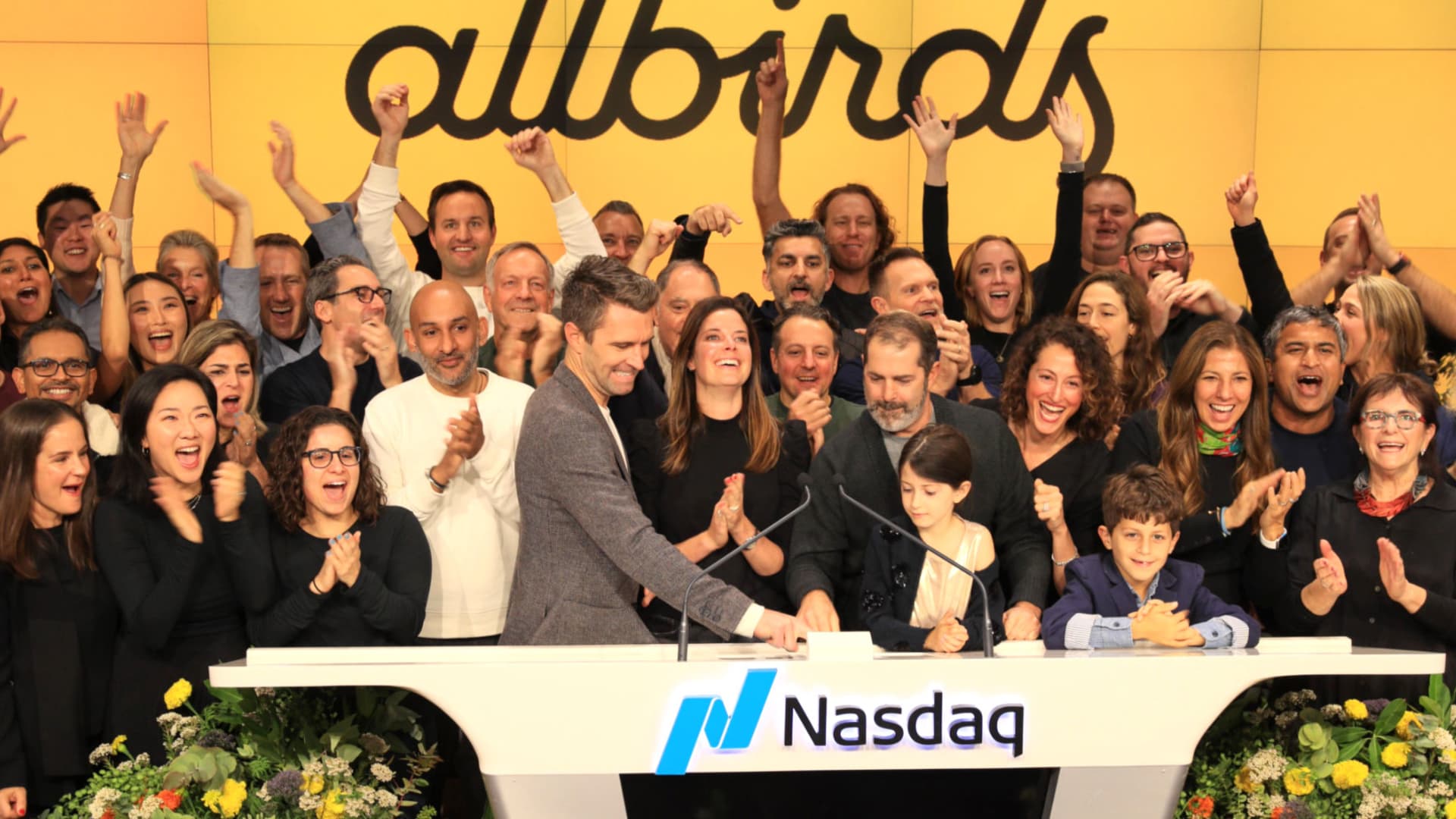The direct-to-consumer boom is coming to an end.
A once-bustling group of companies, backed by billions in venture capital funding, saw a record year for IPOs in 2021. Now, three years later, most of those direct-to-consumer, or DTC, companies still struggle with profitability.
“It’s that profitability angle now that demarcates the winners in DTC from the losers,” said GlobalData Retail’s managing director, Neil Saunders. “One of the problems with a lot of direct-to-consumer companies is they’re not profitable and a number of them don’t really have a convincing pathway to profitability. And that’s when investors get very nervous, especially in the current market where capital is expensive.”
Allbirds, Warby Parker, Rent the Runway, ThredUp and others once represented a new era of retail. These digital-first, ultra-modern companies rose to prominence in the 2010s, boosted by the rising tide of social media ads and online shopping. With the cohort came a huge wave of venture capital funding, propped up by low interest rates.
In just under a decade, venture capital funding exploded, from $60 billion in 2012 to an eye-watering $643 billion in 2021. Thirty percent of that funding was funneled into retail brands, and more than $5 billion went specifically to companies that intersected e-commerce and consumer products. As the Covid-19 pandemic moved most shopping online, venture capital funds were all-in on digital native direct-to-consumer companies.
According to a CNBC analysis of 22 publicly traded DTC companies, more than half have seen a decline of 50% or more in their stock price since they went public. Notable companies in the space, such as SmileDirectClub, which went public in 2019, and Winc, a wine subscription box, have declared bankruptcy. Casper, a direct-to-consumer mattress company, announced it was going private in late 2021 after a lackluster year-and-a-half of trading. Most recently meal kit subscription service Blue Apron exited the U.S. stock market after being acquired by Wonder Group.
Now many of these so-called DTC darlings are being forced to reevaluate their business model to survive a shifting consumer landscape.
Watch the video above to find out what happened to the DTC darlings of the 2010s and how the direct-to-consumer cohort is pivoting in the new decade.
